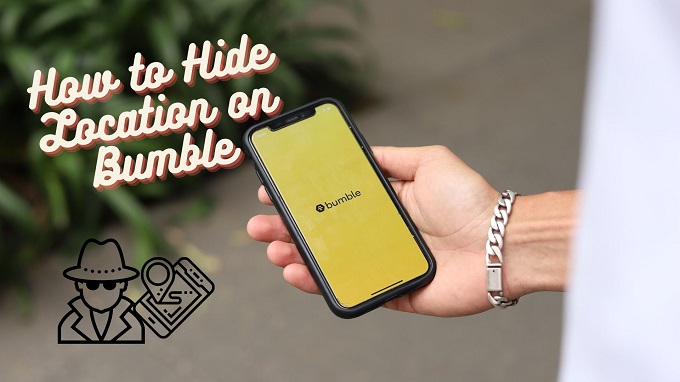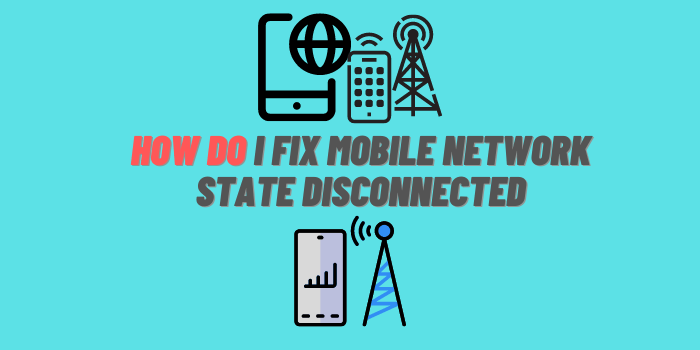In case you are using a VPN, you have probably heard the phrase “onion over VPN”. So what does onion over VPN mean? Why do we need to use onion over VPN? This article will help you understand this in detail!
- What is the onion page?
- What is VPN?
- Are Tor and VPN The Same?
- What is onion over VPN?
- So should we use VPN and Tor?
- Onion over VPN
- VPN over Onion
What is the onion page?

First of all, you need to understand, .onion sites also known as Tor hidden services do not have the same domain name as normal websites, and you cannot access them using a normal browser. Web addresses ending in .onion are always sent to the Tor hidden service on the deep web.
Tor stands for “the onion router”. This is a kind of anonymized computer network that is partly funded by the US government, designed to help users in places where Internet access is censored. When you connect to Tor, your activity is transferred over the Tor network, your identity is concealed from being tracked, and can access blocked websites in the area you are using.
Tor originally used a system created by the US Navy to secure classified interchanges. Tor works by compressing your data to get smaller and encrypting the compressed data before it starts moving through a large organization of hubs, and can be constrained by anybody. The transmission line is predefined and your data and traffic will be routed through all nodes, at least 3 nodes.
Every time traffic goes through a node, an encryption layer is discarded. Once the encryption layer is removed, it is moved to the next node to transmit data. Each transitioning node can only decode enough information for locating the next nodes and the nodes to which the data will be sent.
Edit nodes will get rid of the final encryption layer. It can determine the IP address or location of the user.
What is VPN?
VPN is an acronym for Virtual Private Network, allowing users to set up a virtual private network with several other networks on the Internet. You can use it to access restricted websites due to: geographic location, protect your browsing from “curiosity” on public wifi networks by setting up a virtual private network for you.
When combined with encryption, VPNs provide an optimal solution for online anonymity. That means that the content you are viewing or your visiting location will not be revealed.
A regular VPN works a lot simpler because you’ll have an outsider to support it. The VPN supplier will encode the entirety of your information and web activities, transmitting all access data to a server anywhere controlled by the owner. The user can choose the servers to be located anywhere, you can unlock content dependent on your location while browsing.
A decentralized VPN will more carefully mimic Tor’s architecture. This is a P2P system, users will access a worldwide organization of hubs that are legally regulated by everyone. However, the nodes will be paid to provide the VPN administration and keep the user’s network activity.
Are Tor and VPN The Same?
Tor and VPN are not the same things. Here are the differences between them:
Tor allows you to anonymously, route internet traffic over a global node network, and protect data in the Tor.
VNP is the encryption of the organization association, burrowing all information through the VPN supplier’s worker. Web traffic will show up from the VPN server’s IP address, rather than from your location.
| Criteria: | VPN: | Tor: |
| Network design | A VPN is exactly a global administration that utilizations committed server farm workers to travel around different locations. In addition, a VPN also allows the use of P2P on specific workers and can provide additional dedicated IP addresses, connected anonymously to Tor. | Tor’s primary goal is user privacy and anonymity. This is a browser that helps you anonymously by sending your browsing data to many different nodes. Your traffic will not be tracked because every node is encrypted and hidden from the source IP. |
| Fees for nodes | VPNs pay fees for nodes because these organizations own the framework and serve the users. | Nodes in Tor are not paid for. |
| Cost of use | A VPN has a monthly and yearly subscription. Instead of paying per connection. | Free to use |
| User security | Traditional VPN services route all internet users ‘ traffic through a remote server, hiding the IP address and encrypting all incoming and outgoing data. For encryption, they use technologies like OpenVPN and Internet Key Exchange v2 / IPsec in their applications. One company admitted their server was hacked because an expired private key was revealed, potentially allowing anyone to clone their company’s server. Also, the VPN exit node knows the user’s IP, the destination address, and in many cases (for fiat payments) even the user’s identity (name, email,….). If the destination is unencrypted (for example, not using HTTPS), they can see the content you’re accessing. |
Although Tor is better protection or anonymity settings and is great at hiding your browsing activities, your ISP can in any case see that you’re associated with Tor. This could prompt your ISP to observe you, as US government offices (FBI/NSA) are continually attempting to break Tor and find client movement. Owners of entry nodes can see your genuine IP address. After these hubs conceal your location, the remainder of the hubs will at this point don’t know what your identity is. Nodes will eventually see your traffic, but will not know your identity. There are some risks to utilizing the organization, however, this is the best protection alternative accessible at present. |
| Policy | In theory, a VPN “can” keep the logs of users, but there are also many parties who commit to a policy of not keeping the logs of users. However, no one can be sure that they are not cooperating with the government or that they are not selling user browsing data to third parties. | Some theories suggest that a few hubs are controlled by pernicious entertainers capable of controlling nodes to monitor user activities. The actual organization can’t store logs, nonetheless, Tor’s entrances and leave hubs can see your traffic or IP address, yet assembling the data to recognize you will require a ton of exertion. |
| Display | Some VPNs have intelligent algorithms that automatically choose the best server for you based on location, or meet your special requests. VPN apps are also easier to use, support convenient payment methods (such as credit cards), and have 24/7 support. | Anybody can download and introduce the Tor program to associate with the web (actually like some other program). In any case, the Tor program is very lethargic (because the entirety of your traffic needs to go through many nodes). Hence its actual usability is affected (eg, it is not possible to unlock the website content) but the downside is the trade-off for better obscurity. For hubs, there must be at least 100GB of outgoing traffic (and the same incoming) per month. |
| Technique | VPNs depend on high amounts of bandwidth and fast connection speeds to provide optimal service to their users. Often using multiple implicit protocols to ensure their network can scale and adapt to different needs. | Peak is right now utilized by more than 1 million clients. Because of its scattering properties, the cross-section could hypothetically become bigger. Notwithstanding, it will require a lot higher number of hubs. Tragically, however, there are a great many clients. Pinnacle has seen no significant development in hubs since it is a free help run by volunteers. With no amount for hubs, it can just fill as far as clients. |
What is onion over VPN?
Got a question what is an onion over VPN? To simply understand onion over VPN meaning is that you use a combination of both Tor and VPN. While Tor and VPN both provide privacy protection, in different ways. The Tor Browser and VPN are similar because they share the same purpose but differ in their approach to technology. While both help anonymizes users and ensures all user web activities are private and encrypted, they still have advantages and disadvantages over the other. That’s why using both Tor and VPN at the same time will be the safest decision for the security of your network operation.
So should we use VPN and Tor?
Tor and VPN are two additional security solutions. Therefore, they can be combined to increase your level of information security and anonymity better. There are two methods for using Tor and VPN simultaneously:
Onion over VPN
For this method, you will need to connect to the VPN and then open the Tor. Your VPN will encode the entirety of your traffic before it arrives at Tor while keeping your IP address covered up. Plus, it additionally shrouds the way that you are utilizing Tor from your ISP. In any case, if your VPN supplier logs the logs, they can follow your use of Tor. This is the reason the Onion over Tor strategy is a decent decision when you are utilizing a decentralized VPN, as it doesn’t keep client logs.
If you associate with the VPN supplier before interfacing with the Tor Network, the passage hub will enter the VPN administration’s IP address as the base of the information, rather than utilizing your real IP address. Your Internet Service Provider (ISP) won’t remember you are interfacing with Tor, which may secure your protection or even permit you to get network access in some other country.
This strategy is known as the Tor Over VPN. However, it is still important to take note of the VPN service provider, on the off chance that you confide in them not account your information and are focused on keeping the correct extent of power, you can utilize this strategy.
This is just an issue of attempting to pass on your trust from your network access supplier to your VPN supplier. And you find that your data is being logged and disclosed to a third party, you can use Tor instead.
In addition, the Tor Over VPN additionally gives protection from malevolent hub passages, which is another addition. If you’re thinking about utilizing Tor Over VPN, consider pursuing an NordVPN account – a standout amongst other VPN specialist organizations out there.
However, your traffic is not encrypted when it leaves the Tor network, leaving you unprotected from malicious exit nodes. You still need to be extra careful when sending sensitive information over your connection.
- You need to hide Tor usage from your ISP;
- You need to hide your traffic from the VPN provider;
- You will not send sensitive information over your connection.
VPN over Onion
With this method, you need to connect to Tor and then choose your VPN to activate. Compared to the Onion over VPN method, this method can be more complicated because it requires some manual manipulation on configuration. Using VPN over Onion, your VPNs act as exit nodes, so Tor will not be able to open the final layer of encryption to know your activity. And you can rest assured that your access and IP address will be anonymous.
The principal advantage of VPN Over Tor is having the option to get to specific sites that don’t permit associations from realized Tor leave hubs. VPN Over Tor additionally ensures clients against malignant leave hubs, which is another in addition to.
The VPN Over Tor technique is viewed as more hard to utilize because you need to reconfigure your VPN to utilize it through Tor. It can control up unknown access, secure traffic going through the left hub and back to the VPN supplier’s worker, however that would likewise make Tor harder to utilize.
However, some users argue that the VPN Over Tor strategy doesn’t expand security or protection so much, particularly when it takes effort to reconfigure the VPN. Furthermore, if a wrong sot occurs during processing, it can uncover user data.
The enter button will still be able to see your real IP, but your VPN will only see the exit button’s address. This hides the fact that you use a VPN from your ISP, but they may find that you can use the network on the Tor. This setting will make it easier to bypass geo-blocks, giving you access to some Tor nodes that you were initially unable to.
- You want to protect your online connection from malicious exit buttons;
- You need to hide your VPN usage from your ISP;
- You plan to pass sensitive information over your connection;
- You need to bypass geoblocks.
Conclude
You can securely utilize a VPN with Tor utilizing the Tor Over VPN technique. For the vast majority, nonetheless, that additional layer of information security is overpowering. As with all VPN privacy and security issues, it’s important to use a reliable VPN without a logging policy. Hopefully, with this article, you have enough information to answer the question of what is onion over VPN!






